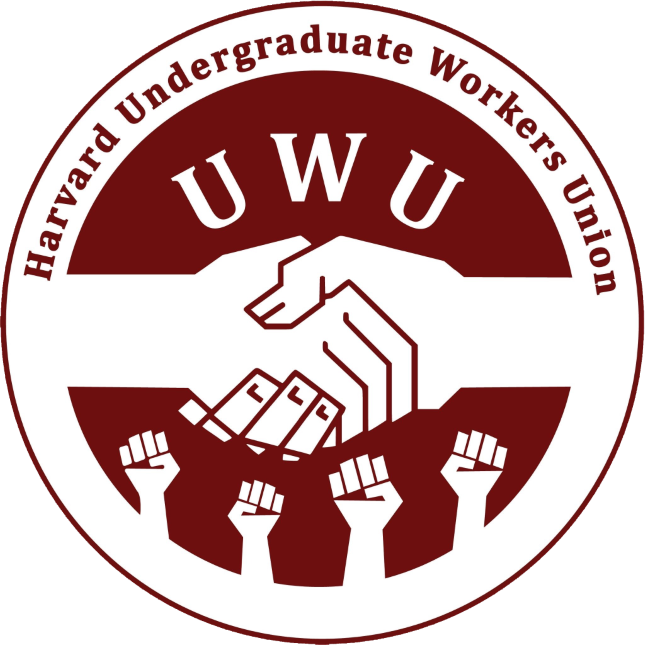Our names are Ricky Sanchez and Maya Anjur-Dietrich, and we are members of your Bargaining Committee!
On Friday, we had our third bargaining session with the Harvard administration team, and we discussed some proposals we’d previously put forward, as well as one new proposal – Article 7 (harassment and discrimination). This session was especially exciting, because it was our first open bargaining session and over 50 people showed up! Seeing all of your faces in the room gave a huge burst of confidence to everyone on BC, and for the attendees we hope it was a valuable experience to see firsthand what bargaining is like. We’re excited to keep that momentum going. If you’re interested in learning more about open bargaining, please let us know here!
Here’s a recap of how the session went! We know it’s long, but we promise it’s juicy.
University Counter-Proposals
We started with the University presenting counters to 3 proposals we presented at the last session:
- On Job Posting (Article 5), the University rejected our proposal for requiring open positions to be advertised widely, because faculty should be allowed the freedom to hire particular people at any point.
- On Appointment Letters (Article 3), we are aiming to increase the information provided in appointment letters (including plain language summaries of some contract articles!) so that it’s easier for all student workers to be aware of their rights, protections, and benefits. We were disappointed to see that the administration accepted none of our proposed changes, even one change concerning a template appointment letter that’s already in use by some departments.
- On Union Access and Rights (Article 18), the University sought to limit the types and number of student worker orientations that we have access to, making it even more difficult for you to learn about your contract and rights, benefits, and protections.
Then, we presented a counter proposal on workspace and materials (Article 15), where we are still pushing for increased protections and rights around working remotely, including from home. The University is maintaining its position that remote work will be limited after the summer and still seem confused about why it is important to have “more provisions” for work-from-home in the contract.
We will continue to push for our positions and will plan to respond to their counter-proposals in the near future.
Discrimination and Harassment
And finally, we finished the session by proposing our changes to Article 7 on non-discrimination, harassment, and abuse or intimidation. We were so happy to have so many support members in the room as we presented this article because we know so many of y’all care about this article, and that many of y’all have been fighting for these protections for years. We presented some massive changes to Article 7, including, of course, the removal of the carveout of harassment and discrimination from the grievance procedure. In other words, we want workers to be able to file a union grievance against the University should they experience harassment, discrimination, abuse, or intimidation, on the basis of any identity. In addition, we made some important changes to Article 7 which included more inclusive language around gender identity and expression throughout, language on affirmative consent, and changes that seek to give student workers surviving harassment and discrimination as much agency as possible while holding those who are serving them to stronger levels of accountability and privacy, including union representatives.
We were surprised then, when Harvard’s bargaining team spent a precious half-hour interrogating the reason for our additions of the categories caste, medical conditions, personal appearance, linguistic identity and accents, class and class background, source of income, and arrest record/prior conviction of a crime. With about 50 support members watching, Harvard’s team seemed to reduce the definition of caste to nationality, was taken aback at the idea that University Disability Resources was not doing enough for all students, and even seemed to suggest that it was not only reasonable to discriminate on the basis of an accent, but that, in fact, they had even discriminated against professors on this basis in the past.
The time felt, at least to me (Ricky), increasingly absurd when Harvard’s team listed only affluent and middle-class as part of the either relevant or existent class systems, when they questioned how an employer might know any information about you that you didn’t volunteer (hi, Google!), and just where the line stops when it comes to not discriminating on the basis of arrest record or prior conviction – welcome to our transformative justice and anti-racism paradigms, Harvard.
RSVP For Future Bargaining Sessions
It means so much to have y’all in the room with us, especially as we continue to put forward some really important articles in our next sessions on 4/19 and 4/26. Showing up to support your union during open bargaining is one of the many ways you can contribute to building your union’s power–and it’s another way we signal to the administration that there’s broad support behind the proposals we bring to the table. We are all stronger when we stand together, and that includes in your workplace, at the bargaining table, and in the broader Harvard community. Going forward, sign up to attend an open bargaining session, get more involved in your union, and, if you haven’t, sign a membership card today. Together, we can make a more just Harvard.
In solidarity,
Ricky and Maya


